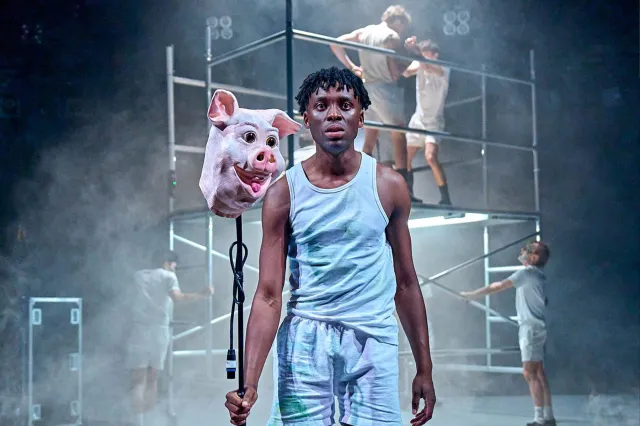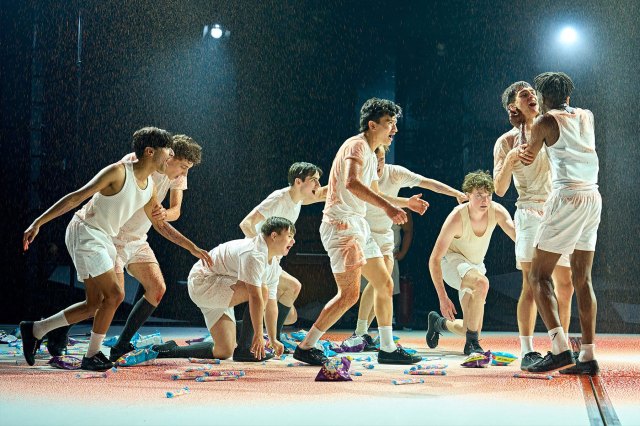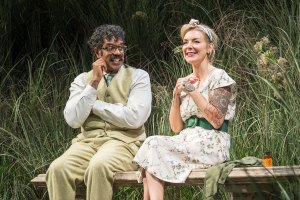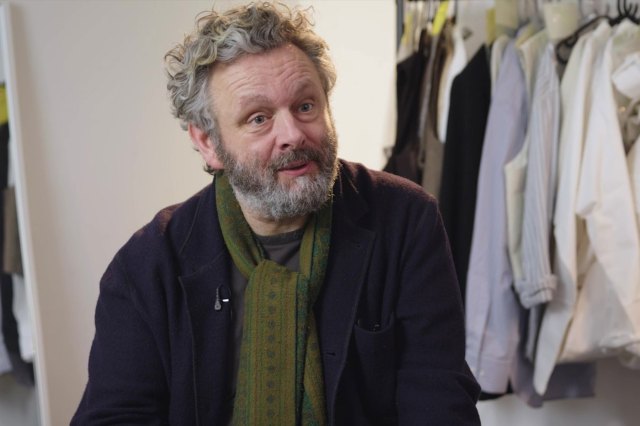Lord of the Flies at Chichester Festival Theatre – review
Nigel Williams’s stage adaptation of the William Golding novel continues to 11 October

The trigger warnings for Chichester’s staging of William Golding’s 1954 Lord of the Flies are so plentiful that they are read from the stage by a principal cast member like some kind of foreboding prologue. They include “scenes of aggression, bullying, body shaming and acts of war and death” to name but a few on the list in Anthony Lau’s searing and starkly stripped-back production.
It’s hard to think of a time that the Chichester stage has been left so radically exposed and so abrasively treated as it is in Georgia Lowe’s brutally sparse but incredibly effective designs. Under the harsh fluorescence of Matt Daw’s brilliant lighting, this is an unforgiving wasteland of scaffold towers, flight cases and plastic sheeting. It’s a severe landscape onto which the humanity of Golding’s characters are quickly to disintegrate into animalistic savages with shocking results.
The story of the group of stranded boys on a deserted island has been a favourite in schools for many years. The boys are all survivors of a plane crash, having been evacuated during the war. On their island, they begin to follow the constructs of a society that they have very little real understanding of. Some know that rules are important, whilst others see it only as an opportunity to live without them. Golding’s exploration of society, civility, order and acceptance is all brought to thrilling life by an extraordinary cast of young men, many making their professional stage debuts.

Sheyi Cole is a quietly commanding force as the natural-born leader Ralph. His propensity for order and practicality make him a force for good, but one that is sadly given little hearing by those around him. Cole displays an emotional intelligence in his performance that makes him an entirely entrancing watch on stage and will surely be someone to keep an eye on in the future.
Alfie Jallow’s equally engaging Piggy is the well-meaning conscience of the group. Jallow’s warmth and sympathetically homely portrayal of the entirely loyal and eminently sensible young Piggy is a delight and is rich with a poignant light-heartedness. Tucker St Ivany is the darkly discordant Jack, challenging authority and order whilst descending into base savagery at every turn. Part petulant child and part psychopath, it is a disturbing if not always fearful performance.
Lau directs with a rapid hand that allows the uniformly energetic and committed company of young performers to create a colourful pallet of behaviours that hold a timely mirror to our very real and current societal problems. Lau’s high concept occasionally borders on gimmickry and annoyingly doesn’t always manage to pull back in time – the sacrificing of a pig is given the full piñata treatment, for instance. Inconsistencies jar as the storytelling intermittently wanders a little off the beaten track – it is odd that on a deserted island on which the boys are only just about able to light a fire, they are suddenly able to torture with a handy electric cordless drill!
Giles Thomas’ ominous underscoring gives the whole thing a cinematic feel beneath some really quite stand-out visual moments. As the first act draws to a close and the group of boys begin turning on one of their own, a literal blood-bath of disturbing proportions develops in a brilliantly unexpected way.
It’s an uncompromising and fearless examination that is unpleasantly relevant to today. As the group of boys split into warring factions, Jack tells his enemies to “go back to where they came from, this is our rock” – it’s a line that sounds bleakly familiar in news stories on our TV screens right now. At 71 years old, it’s a story that continues to be timely, disturbing and brilliantly insightful.















